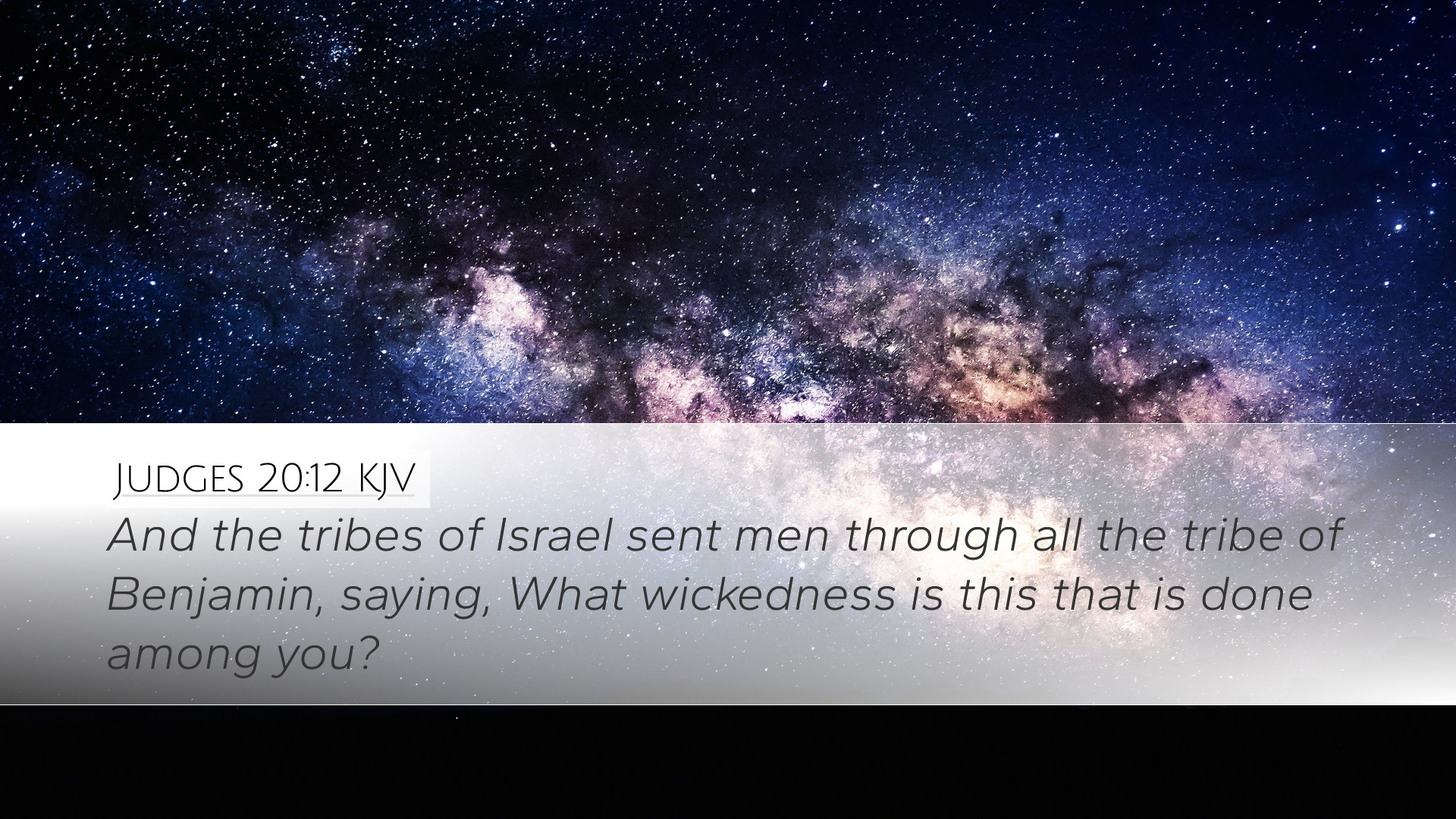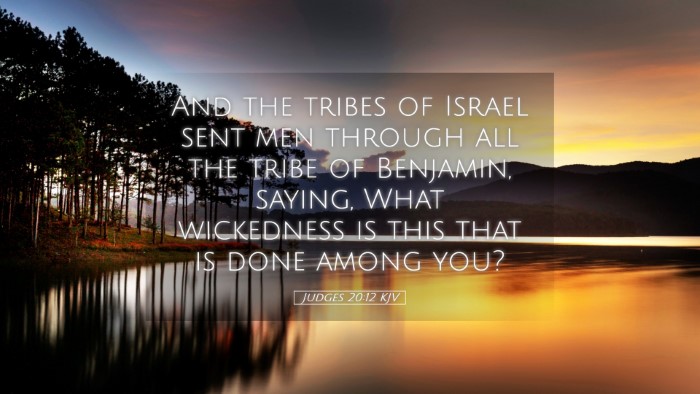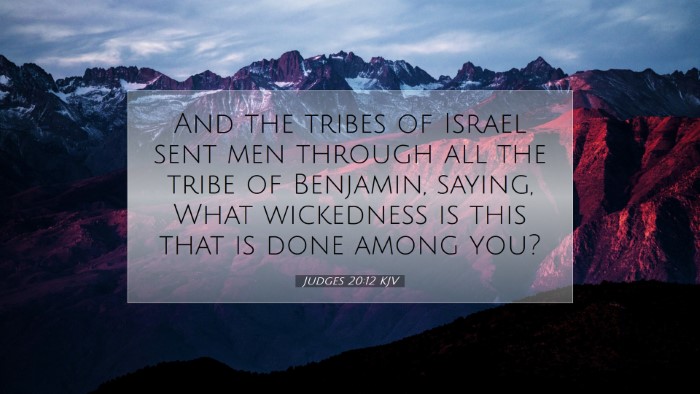Bible Commentary on Judges 20:12
Judges 20:12 states: "And the tribes of Israel sent men through all the tribe of Benjamin, saying, What wickedness is this that is done among you?" This verse sets the stage for one of the most tragic events in Israel's history, showcasing a moment of profound moral and social crisis.
Contextual Background
To grasp the significance of this passage, we must first understand the historical and spiritual context of the Book of Judges. This book illustrates a cycle of sin, oppression, repentance, and deliverance that was emblematic of Israel’s turbulent period before the establishment of the monarchy. The events in Judges 20 follow a grievous incident that occurs in Gibeah, a city in the territory of Benjamin, which provokes national outrage and calls for action.
Analysis of Key Themes
-
Moral Decline:
The statement made by the tribes of Israel reflects a crisis of morality. The events leading up to this point involve a Levite's concubine being abused and killed, leading to a shocking act of vengeance by her husband. The question posed indicates the depths of wickedness that the Israelites had sunk into.
-
Societal Responsibility:
The mobilization of the tribes to confront the tribe of Benjamin signifies collective responsibility in addressing sin and injustice. This reflects a fundamental principle found throughout scripture, that the community shares in both accountability and the resolution of sin.
-
The Call for Justice:
As the tribes of Israel come together, they embody the notion of seeking justice. This unity is critical in challenging sin and addressing societal breakdown. This call for justice foreshadows the intense conflict to come.
Commentary Insights
Matthew Henry's Commentary
Matthew Henry emphasizes the seriousness of sin that has infiltrated the camp of Israel. He notes that this inquiry into Benjamin's actions signifies not merely a local issue but one that has national implications. Henry suggests that this phase in Israel’s history highlights the consequences of forsaking God’s laws and the moral decay that ensues.
Albert Barnes's Commentary
Albert Barnes examines the implications of this inquiry, focusing on the incredulity among the tribes of Israel towards the wickedness found in Benjamin. He remarks on the systematic approach taken by the Israelites, showcasing the unity needed to confront a shared transgression. Barnes argues that it reflects a fundamental aspect of communal life in ancient Israel, where such wickedness could not go unaddressed without jeopardizing the nation as a whole.
Adam Clarke's Commentary
Adam Clarke provides insight into the rhetorical nature of the question presented. He points out that this was not merely a matter of inquiry but an assertion of the moral and ethical failure present within Benjamin. Clarke highlights that this confrontation embodies the collective conscience of the Israelites and calls for reformation, pointing to the necessity of returning to righteous living.
Reflections for Modern Application
Today's pastors, theologians, and students of the Bible can draw several key lessons from Judges 20:12:
-
The Importance of Accountability:
In contemporary society, the call for accountability remains vital. The willingness to confront that which is wicked among us reflects a necessary aspect of church leadership and community life.
-
Understanding Collective Responsibility:
We are reminded that the actions of one can have repercussions for the many. The collective approach taken by the tribes of Israel encourages today’s believers to engage with one another in matters of moral and ethical standards.
-
Seeking Justice and Righteousness:
The quest for justice, as born from this incident, resonates today. Believers are called to stand against injustices present in contemporary society, driven by a passion to reflect God’s righteousness in the public sphere.
Conclusion
Judges 20:12 serves as a poignant reminder of the dire consequences of moral decay and the necessity of confronting wickedness. The unity displayed by the tribes of Israel in their determination to address the issue highlights the communal aspects of faith in action. By learning from this passage and the insights offered by centuries of biblical scholarship, modern believers can better navigate the challenges of righteousness in a world often marred by injustice.


